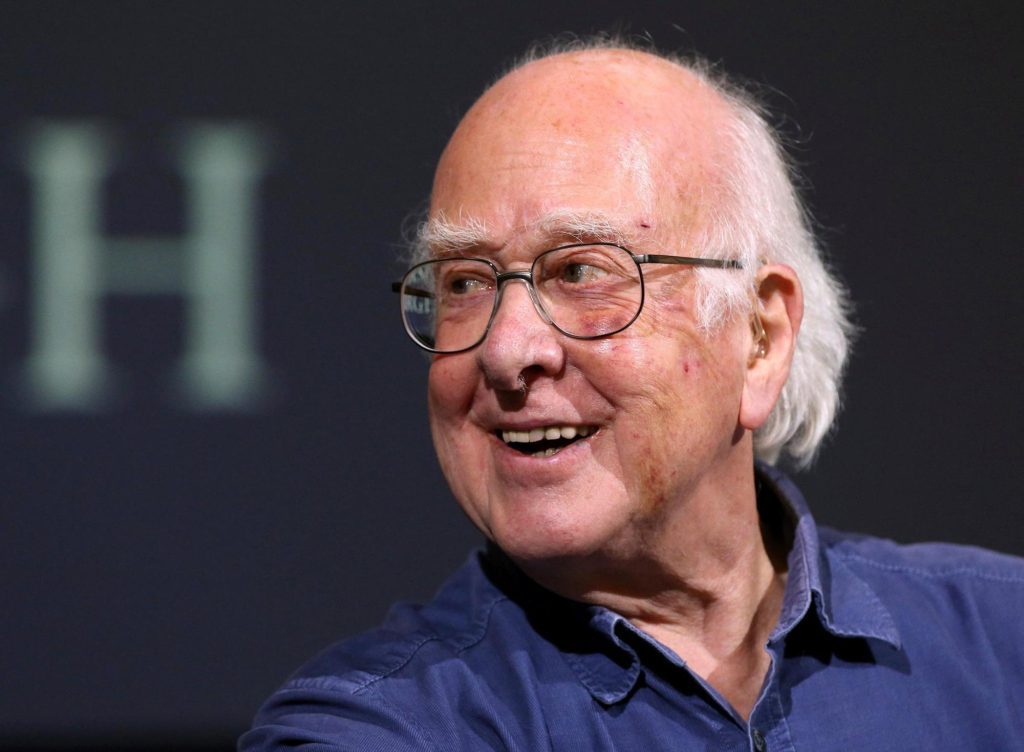By DANICA KIRKA, JILL LAWLESS and JAMEY KEATEN (Associated Press)
LONDON (AP) — Nobel prize-winning physicist Peter Higgs, who proposed the existence of the so-called “God particle” that helped explain how matter formed after the Big Bang, has died at age 94, the University of Edinburgh said Tuesday.
The university, where Higgs was emeritus professor, said he died Monday following a short illness.
Higgs anticipated the existence of a new particle, which later became known as the Higgs boson, in 1964. He theorized that there must be a sub-atomic particle of certain dimension that would explain how other particles — and thus all the stars and planets in the universe — acquired mass. Without something like this particle, the set of equations physicists use to describe the world, known as the standard model, would not hold together.
Higgs’ work aids scientists in understanding one of the most fundamental mysteries of the universe: how the Big Bang created something out of nothing 13.8 billion years ago. Without mass from the Higgs, particles could not clump together into the matter we interact with every day.
However, it would be nearly 50 years before the particle’s existence could be confirmed. In 2012, in one of the most significant advances in physics in decades, scientists at CERN, the European Organization for Nuclear Research, announced that they had finally discovered a Higgs boson using the Large Hardron Collider, the $10 billion atom smasher in a 17-mile (27-kilometer) tunnel under the Swiss-French border.
The collider was largely designed to find Higgs’ particle. It creates collisions with extremely high energies in order to replicate some of the conditions that were present in the trillionths of seconds after the Big Bang.
Higgs received the 2013 Nobel Prize in Physics for his work, along with Francois Englert of Belgium, who independently developed the same theory.
Edinburgh University Vice Chancellor Peter Mathieson stated that Higgs, who was born in Newcastle, was “an extraordinary individual – a truly talented scientist whose vision and imagination have enhanced our understanding of the world that encircles us.”
“His groundbreaking work has inspired thousands of scientists, and his legacy will continue to motivate many more for generations to come.”
Born in Newcastle, northeast England on May 29, 1929, Higgs studied at King’s College, University of London, and was awarded a PhD in 1954. He spent much of his career at Edinburgh, becoming the Personal Chair of Theoretical Physics at the Scottish university in 1980. He retired in 1996.
One highlight of Higgs’ career occurred during the 2013 presentation at CERN in Geneva where scientists communicated in intricate terms — based on statistical analysis incomprehensible to most laypeople — that the boson had been validated. He became emotional, wiping down his glasses while sitting in a CERN lecture hall.
“There was an emotion — a kind of vibration — going around in the auditorium,” Fabiola Gianotti, the CERN director-general told The Associated Press. “That was just a unique moment, a unique experience in a professional life.”
“Peter was a very compassionate person. He was very kind, affectionate, and also very interested in what other people had to say,” she remarked. “Able to pay attention to other people … open, and fascinating, and curious.”
Joel Goldstein, of the School of Physics at the University of Bristol, stated: “Peter Higgs was a reserved and humble man, who never seemed at ease with the fame he achieved even though this work forms the basis of the entire modern theoretical framework of particle physics.”
Gianotti remembered how Higgs often reacted negatively to the term “God particle” for his discovery: “I don’t think he liked this kind of definition,” she said. “It was not in his style.”









